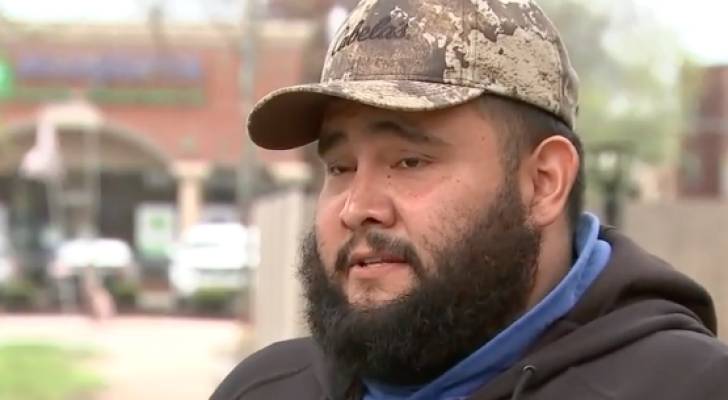
When Marco Velazquez, a Chicago homeowner, discovered squatters living in his South Side property, he didn’t leave. Instead, he stayed the night.
“I couldn’t believe it,” Velazquez told ABC 7 News, after finding the home he was preparing to sell was already occupied. “It was like a nightmare.”
Don’t miss
- I’m 49 years old and have nothing saved for retirement — what should I do? Don’t panic. Here are 5 of the easiest ways you can catch up (and fast)
- You’re probably already overpaying for this 1 ‘must-have’ expense — and thanks to Trump’s tariffs, your monthly bill could soar even higher. Here’s how 2 minutes can protect your wallet right now
- Gain potential quarterly income through this $1B private real estate fund — even if you’re not a millionaire. Here’s how to get started with as little as $10
What went down
The intruders, a woman named Shermaine Powell-Gillard and her boyfriend, Codarro, claimed they had purchased the property and even produced a mortgage document for police. But when Velazquez checked with Cook County officials, no such mortgage was on record.
To his shock, the police couldn’t help.
“The worst thing happened when police told me they couldn’t do anything. It needs to go to a civil court,” he said, indicating that Illinois law prevented officers from removing the pair without a court order, despite Velazquez holding the deed.
Determined not to let go of his home, Velazquez made an unusual choice.
“I said, ‘I’m not going to leave.’ Called a couple friends, stayed overnight and I knew they were not going to like that,” he told ABC 7’s I Team.
He, his wife and some friends camped out in the living room while the alleged squatters took one of the bedrooms.
“We stayed a whole night with them … watching the door,” Velazquez recalled.
The next morning, Velazquez was given an ultimatum.
“They were like, we want $8,000 of what we paid, so we can leave your property,” he said.
Though reluctant, Velazquez eventually negotiated a cash-for-key deal. He paid the couple $4,300 in exchange for their leaving and signing a release, as he feared what might happen otherwise.
“We didn’t want to give them money, but we heard really bad stories about squatters taking over properties for six, eight, 10 months, even a year,” he said.
Weeks later, a police detective told Velazquez that Powell-Gillard had also allegedly squatted in another home owned by Marcia and Carlton Lee. In that case, Powell-Gillard was arrested and charged with burglary, forgery, obstructing identification and criminal residential trespassing.
Powell-Gillard has denied all accusations, stating that claims she is a squatter are “false and unfounded,” and emphasized that she is “innocent until proven guilty,” says ABC 7.
The Chicago Police Department has not confirmed if they’re investigating Velazquez’s case. No one has been arrested or charged.
Read more: Want an extra $1,300,000 when you retire? Dave Ramsey says this 7-step plan ‘works every single time’ to kill debt, get rich in America — and that ‘anyone’ can do it
Why police can’t always act — even when it’s your house
Velazquez’s case underscores a broader legal issue: why property disputes involving squatters often fall under civil — not criminal — law.
In Illinois and many other states, once someone establishes “possession” of a home, even wrongfully, it can be difficult to distinguish them from a legal tenant. That means a legal eviction process must occur before law enforcement can step in.
Under the current Illinois law, police often need clear evidence of criminal behavior, like a break-in or vandalism, to act. Like in Velazquez’s case, if the squatter presents a lease, mortgage, utility bills or other documents — whether forged or not — police typically don’t have the authority to assess authenticity on the spot.
Instead, the dispute moves to civil court, where a judge can determine rightful ownership.
But this may not be the case for much longer. ABC 7 reports that Senate Bill 1563 is working toward allowing police to remove squatters and skip the eviction process. The bill still has to be passed by the full Illinois House and would then be sent to the governor’s desk for final approval.
What to read next
- Don’t have the cash to pay Uncle Sam in 2025? You may already be eligible for a ‘streamlined’ handshake with the IRS — here’s how it works and how it can potentially save you thousands
- Robert Kiyosaki warns of a ‘Greater Depression’ coming to the US — with millions of Americans going poor. But he says these 2 ‘easy-money’ assets will bring in ‘great wealth’. How to get in now
- Here are 5 ‘must have’ items that Americans (almost) always overpay for — and very quickly regret. How many are hurting you?
This article provides information only and should not be construed as advice. It is provided without warranty of any kind.